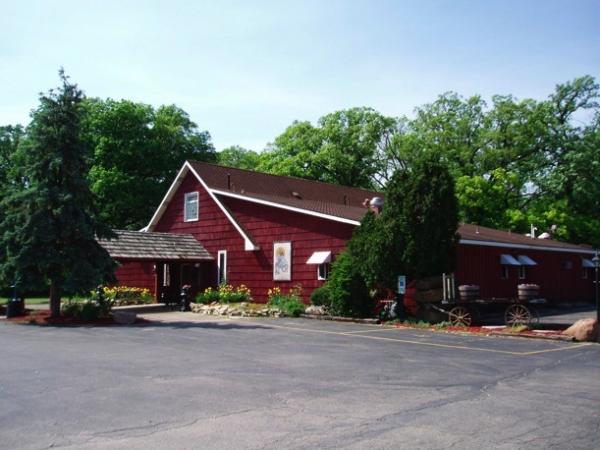Category: news
Sales Executive KC Downer Rejoins Mosaic Construction
Mosaic Construction, LLC, a full-service commercial and multifamily design-build firm, is pleased to welcome KC Downer back to its growing team.
Continue reading “Sales Executive KC Downer Rejoins Mosaic Construction”
What’s New for America’s Most Popular Cannabis States?
2019 has been the year of the cannabis plant in the United States. New states have joined the recreational cannabis club, young medical programs are exploding, mature ones are diversifying, and the Northeast is inching along. Here is the latest on the nation’s most popular cannabis states.

Colorado’s Cannabis Program Adds Versatility
Changes are coming to Colorado’s medical and recreational cannabis programs. House Bill 1230 will allow legal social consumption at businesses like dispensaries, restaurants, hotels, and music venues. Home-delivery of medical cannabis can begin in 2020, followed by recreational in 2021 thanks to the passage of House Bill 1234. In response to the state’s opioid epidemic, Governor Jared Polis signed the MMJ for Opioids Bill, which allows doctors to recommend medical cannabis as an alternative to opioid medications. The medical program also added autism to its list of qualifying conditions. Finally, House Bill 1090 opens Colorado’s cannabis industry to out-of-state investors and capital, including publicly held companies and large venture funds. Per Westword, “The bill would also permit investors to own smaller stakes (less than 10 percent) in a cannabis business.”
Illinois Hits a Snag
According to the Illinois Regulation and Tax Act, the state’s 55 existing medical dispensaries would have first dibs at applying for a recreational sales license at the same site, plus a second license for one at a different location. However, recently, The Illinois Department of Financial & Professional Regulation, the agency in charge of issuing those initial recreational-use licenses, announced a different interpretation: “…if a medical dispensary wishes to relocate for any reason — whether it’s for more space or if a home municipality bans recreational sales — it forfeits its right to also sell recreational marijuana,” per the Chicago Tribune.
This has created chaos for companies like Green Thumb Industries (GTI), which was awarded a retail license by the state in its Naperville location before the city council opted out of the program. “Naperville’s 6-3 vote on Tuesday, September 3 (2019) marks one of the first major roadblocks for Illinois’ marijuana industry as it prepares for recreational sales next year,” the Chicago Tribune added. “Whether GTI, or any other company, can open a store for recreational marijuana, could be reconsidered by the council after a potential non-binding voter referendum.”
Other municipalities in Chicagoland to ban recreational stores include Bolingbrook and Wheaton.
Oklahoma Medical Cannabis is Soaring
Previously, we wrote about the launch of Oklahoma’s medical program, and nothing is halting its trajectory toward a projected value of $250 million per year by 2025.
As of August, 2019, there are 162,273 registered medical cardholders, a number that’s been growing by up to 10,000 per month for the last year. To put those numbers in perspective, that’s 4 percent of the state’s total population.

There’s a pretty easy explanation for this success: patients don’t have to meet qualifying conditions, and instead only need a referral from a physician. There are also no caps on dispensary licenses, which is why the current number is over 1,700. Additionally, the barrier to entry is low. According to the Arkansas Times, “The license to grow on a commercial scale or open a dispensary in Oklahoma is a flat $2,500 and a fare thee well, open to any Oklahoma resident who hasn’t had a felony in the past five years. Their law allows cardholders to possess up to a half pound of marijuana, and grow up to six plants at a time. Their law also made possession of up to 1.5 ounces by non-cardholders a misdemeanor punishable by a maximum $400 fine.”
Additionally, High Times Magazine put Oklahoma’s cannabis culture on the map when it held its renown Cannabis Cups in Oklahoma City in August.
Massachusetts Social Equity
As more recreational cannabis businesses come online in Massachusetts, the push for social equity is taking center stage. Real Action for Cannabis Equity (RACE) started in Boston in September, 2019 to address the dearth of minority-owned operators. Per Marijuana Business Daily, “Organizers say they’re frustrated that all but two of Massachusetts’ 184 marijuana business licenses were issued to white operators…black entrepreneurs in Massachusetts who say people of color are being shut out of the lucrative marijuana industry are joining forces to close the gap.”
New York Decriminalizes Cannabis
Though New York state failed to pass recreational cannabis during the 2019 legislative session, a last-minute compromise was reached on decriminalization. According to The New York Times,”Under the new law, possessing between one and two ounces of marijuana will no longer be considered a Class B misdemeanor. It will now be a violation, with fines up to $200. Those found with less than an ounce of marijuana will now face a $50 fine, compared with $150 previously.” In addition approximately 160,000 people will have cannabis convictions expunged from their records.
New Jersey Still has a Chance to Pass Recreational Cannabis
The Garden State saga to legalize recreational cannabis is back on. The state Legislature came up short on votes to pass a new law earlier in 2019, but the law-making body isn’t giving up, envisioning two scenarios:
- Holding another vote for the bill during the lame duck session at the end of 2019 or the first half of 2020
- Putting it on the ballot for the November, 2020 election
Governor Phil Murphy has voiced his preference of passing recreational cannabis through the Legislature versus relying on the ballot box. According to NJ.com, “Such a move would allow leaders to more easily mold and regulate the new marijuana industry. And waiting until next year’s elections means you likely won’t be able to consume weed legally in New Jersey until early 2021, at the earliest.”
Success Story Part 1: A Bar’s Origin and Journey
If a bar’s walls could talk, you could imagine the stories it would tell. The secrets, truths, tales, and a mix of all three from patrons, bartenders, cooks, and other staff remain trapped under layers of paint, trying to escape unsuccessfully through the cracks. But every now and then, there’s a special bar with a classic design, heft, and durability that embarks on an epic journey. It’s the kind of bar you see once in 125 years, about to celebrate its Quasquicentennial. It doesn’t need to rely on walls to tell stories because the bar is the story.
This bar’s story is told in four acts, beginning in the big city of Chicago in the late 19th Century and continuing down-state to this very day.
Act 1: The Origin
When you consider the bar’s roots, it makes sense that it was destined for longevity. Anheuser Busch Co. commissioned the bar in 1882, which was designed and built by Brunswick Balke-Collender. The TIMES-PRESS of Streator, IL, described it as, “…a splendid oak and brass structure with intricately carved detailing that measured 14 feet high by 30 feet long and featured 13 electrified gas lights with three sections of mirror and colonnades. The front bar had a copper foot rail and a marble base.”
Anheuser Busch was impressed enough to display the bar at The World’s Columbian Exposition in Chicago in 1893 where it resided in the company’s pavilion for the Fair’s year-long run. When the Fair concluded, sponsors of the exhibits sold displays and showpieces. A barkeep by the name of John Trapp purchased the bar and had it transported by Anheuser Busch’s famed Clydesdale horses some 100 miles away to the small industrial town of Streator and placed in his saloon, Trapp’s Tavern.
___________________________
It’s the kind of bar you see once in 125 years, about to celebrate its Quasquicentennial. It doesn’t need to rely on walls to tell stories because the bar is the story.
___________________________
Act 2: Trapped
At the time, Streator had a prolific coal and manufacturing industry and was known as a midwestern railroad hub. Business was good at Trapp’s Tavern, located on Main Street, and the new bar, fresh off it’s run at The World’s Fair, attracted many patrons. According to the TIME-PRESS, the one beer served was Anheuser Busch, and one story reports the kitchen cooked only roast beef sandwiches, while another adds navy bean and chicken noodle soups, and ham sandwiches. Every account, though, notes, “One of the pieces Trapp purchased with the bar was a ‘women’s room’, which was a 15-foot by 15-foot oak and glass walled cubicle where women sat waiting until their men had their fill in the saloon.”
Act 3: Moving Inn
After an 82-year run, the legendary Trapp’s Tavern went out of business, but the allure of the bar grew stronger. Much like the previous century all those decades ago, a new face purchased the bar and gave it a new home. On June 27, 1976, Victor Anderes of Peru, Illinois bought the bar at auction for $26,000. Trapp’s Tavern and the renowned bar went out in style, as an estimated crowd of 200 people from as far as California, Colorado, and Florida gathered for the event. Anderes, a restaurateur, moved the bar to his new business, the Rockwell Inn in Morris, Illinois, 38 miles to the north east.
Recognized more than ever as a marvel of craftsmanship and utility, the bar was installed as the focal point of the new space. Anderes paid homage to its history, naming the room it resided in “The Columbian Exposition Lounge”, while defiantly renaming the former “Women’s Room” the “Not for Women Only” room. The bar even survived a major fire in 1985 because it was somehow shielded from the flames by the tin ceiling that collapsed on it.
Act 4: Greener Pastures
In 2013, the Rockwell Inn shuttered its doors, presumably ending the bar’s intrastate historical journey. This time there were no post-World’s Fair buyers or auctioneers, bidders, or Clydesdales to move the bar to its new home. Finally, the bar had succumbed to its final chapter.
Or so the city of Morris thought.
The forces of change, innovation, entrepreneurship, and nostalgia are powerful enough to revitalize a relic. On August 1, 2013, Illinois enacted the Compassionate Use of Medical Cannabis Pilot Program Act. In 2014, Chicagoland-based Grassroots Cannabis launched and soon engaged Cannabis Facility Construction to design-build its new Greenhouse dispensary in Morris, using an existing space once called the Rockwell Inn. Converting an old restaurant into a medical cannabis dispensary would present many challenges, but one thing was crystal clear: that sleeping, history-weary bar would make its greatest comeback yet.
Read More: Success Story Part 2: Converting a Historical Restaurant into the Greenhouse Dispensary
References
McCullough, D. (1987) ‘World’s Fair flavor found in old bar furniture’, TIMES-PRESS, Streator, 29 July
(1983) ‘Main Street Trapp’s has long history in Streator’, TIMES-PRESS, Streator, 12 May
(1976) ‘Purchases Trapp’s Bar For $26,000’, TIMES-PRESS, Streator, 28 June
How to Safeguard Your Cannabis Business from Cyber Threats

Have an Airtight Point of Sale System
The hardware and software combination that centralizes your business operations makes POS systems prime targets for hackers. The data stored in POS systems contain valuable and sensitive customer, employee, inventory, and operational information. Invest the time with your POS vendor to fully understand security coverage used to protect your data, their servers, and the privacy of your patients.
“There is an enormous incentive for hackers to target our young and immature industry…”
Ensure all Integrated Systems are Secure
While POS systems are one entry point for hackers and ransomware, so are the openings created by integrated systems. Cannabis businesses often use POS, Business Management, and Enterprise Resource Planning (ERP) systems together. It’s a best practice, but it also provides hackers with a low barrier of entry into your data. Protect vulnerable business data by sealing any security gaps during the integration process.
Hire an Independent Cyber Security Expert
Go all in by hiring a third party to ensure security across the board. If recent history is any indication, cannabis businesses will continue to be vulnerable to data breaches–leaking tax records, social security numbers and citizenship information–that can have devastating bottomline and reputational impacts. The right cyber security provider will not only ensure compliance, but also proactively protect your customers and investment.
Conclusion
Burgeoning cannabis businesses recognize that with great success comes great risk. In the race to ensure regulatory compliance and business growth and sustainability, protecting your operational data must be a top priority. Dr. Moe Afaneh, COO of BioTrackTHC, sums it up nicely: “Cannabis businesses are literally gold miners [sic] in the sense that their software data will define the future of this industry and their success. There is an enormous incentive for hackers to target our young and immature industry, which is why the last thing you want to do is make it easy for them.”
New Governors See a Bright Future for Cannabis
Several governorships flipped as a result of the midterm elections, which can mean moving the needle on cannabis legislation. Here’s what we know about the new Governors Elect and how they are poised to change the cannabis landscape of their states:
CONNECTICUT
Ned Lamont
Recognizing that Connecticut could see $30 million or more in tax revenue in year one of legalized recreational cannabis, Lamont has stated, “It is another source of revenue for the state. All of our neighbors have legalized marijuana. We [can] do this carefully [and] regulate it.”
KANSAS
Laura Kelly
The majority of Kansans support legal recreational cannabis, but Governor Elect Kelly wants to start with medicinal first. “I think that there is some momentum in the Legislature to pass, to legalize medical marijuana,” she said. “I think we would do it Kansas-style, where it would be well-regulated.”
ILLINOIS
JB Pritzker
Voters in Cook County supported recreational cannabis by a margin of 63 – 37 percent in a non-binding ballot referendum in March. It served only to gauge interest for the state, which has had a medicinal cannabis program since 2015. The day after winning the gubernatorial election, Pritzker noted that legalizing the sale and possession of cannabis for recreational use is “something we can work on nearly right away…We’ll restart those conversations with the leaders in both Houses, on both Republican and Democratic sides about our priorities, which will include legalization.”
MINNESOTA
Tim Walz
The pro-cannabis Democratic–Farmer–Labor Party now controls the governorship, AG office and state House, which will help Governor Elect Walz with his recreational cannabis agenda. Earlier this year, he tweeted, “I support legalizing marijuana for adult recreational use by developing a system of taxation, guaranteeing that it is Minnesota grown, and expunging the records of Minnesotans convicted of marijuana crimes. #mngov #OneMinnesota”
NEW MEXICO
Michelle Lujan Grisham
The Tax Foundation projects that New Mexico, a medical cannabis state, could raise up to $57 million in a year should it enact recreational legalization. Governor Elect Lujan Grisham appears to be onboard: “I am committed to working with the Legislature to move towards legalizing recreational cannabis in a way that improves public safety, boosts state revenues, and allows for New Mexico businesses to grow into this new market.”
WISCONSIN
Tony Evers
Evers is in favor of medical cannabis and will leave it to voters to decide on adult-use legalization. If the midterm elections were any indication, Wisconsin should have a fully legalized program sooner than later. Non-binding referenda in 16 counties and two cities showed that an overwhelming majority of voters support recreational and medical cannabis.
Significant legislative changes are not expected by governors elect of states that have already enacted full adult legalization. Gavin Newsom (California), Jared Polis (Colorado), Steve Sisolak (Nevada), and Kate Brown (Oregon) will most likely continue advocating as Marijuana Policy Reform Allies. Gretchen Whitmer (Michigan), a consistent supporter, will assume office in the state to most recently pass adult legalization.
Check out our other 2018 election post Green Wave: Cannabis is Midterm Elections Winner.











